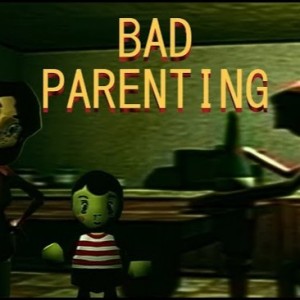Bad Parenting
Bad Parenting review
Having journeyed through countless titles and genres over the years, few experiences have left as lasting an impression as Bad Parenting. This game boldly takes a satirical look at the trials and tribulations of modern family life, offering an experience that is as humorous as it is thought-provoking. As an experienced gamer with an insatiable curiosity for titles that defy the norm, I found myself both amused and challenged by the narrative and mechanics of Bad Parenting. In this review, I will share in-depth insights regarding the gameplay, storyline, graphics, and many other aspects, ensuring you have all the details needed before you decide to download this title. Whether you plan to play casually, free your schedule to install it on your favorite platforms, or explore its unblocked versions, this review should help you make an informed decision.
A Narrative that Pushes Boundaries
At its core, Bad Parenting tells a tale that is equal parts dark humor and social commentary. What starts as a quirky, tongue-in-cheek simulation quickly evolves into an exploration of responsibility, ethics, and the unforeseen consequences of choices made in the heat of the moment. The game creatively portrays challenging family dynamics, illustrating how managerial decisions have lasting impacts on every character involved. In a setting where tradition collides with unconventional humor, the story manages to keep the player on edge with unexpected twists, all while challenging societal norms.
Deep Dive into Gameplay Mechanics
One of the most engaging aspects of Bad Parenting is its unique approach to gameplay. Deviating from typical strategy and simulation formats, this title introduces innovative control schemes that require both finesse and strategy. You must learn fast how to make decisions that balance financial struggles with emotional outcomes. Each decision carries weight, affecting the stability of your virtual household. From managing seemingly trivial daily tasks to navigating intricate personal relationships, every moment becomes a test of your strategic planning.
The layered complexity offers a rewarding challenge for experienced and new gamers alike. Although you might initially stumble over new commands, the intuitive tutorials and gradual ramp-up ensure you quickly become comfortable. Upon deciding to play, you realize that experiencing the game is, essentially, an immersive exercise in multitasking and decision-making.
Exploring Dynamic Environments
Bad Parenting honors the tradition of open-world exploration with meticulously crafted interiors and unexpected environmental challenges. Each location, whether it be a chaotic home or a sophisticated urban setting, is rendered with significant attention to detail. The dynamic environments demand constant attention, as subtle shifts in lighting and background interactions often signal hidden challenges. Players can choose to explore every facet of these intricate settings on multiple platforms, ensuring an enriching experience whether you are at home or on the go.
Artistic Direction and Visual Appeal
The aesthetics of Bad Parenting deserve special mention. Departing from hyper-realistic renditions, the game opts for a deliberately stylized, almost surreal art direction that contributes heavily to its unique character. The color palette, art style, and character designs capture the absurdity inherent in the storyline. Each scene is rendered with an artistic flair that feels both modern and reminiscent of classic animation, a choice that undoubtedly enhances the thematic content of the game.
For gamers who enjoy exploring various mods, the creative community around this title has already begun to produce modifications that accentuate or even alter the game's original art style. Such additions can breathe new life into the experience, making each playthrough feel fresh and personally tailored.
The Music and Soundtrack Experience
Sound design in Bad Parenting is as quirky and carefully curated as its visuals. The background score features a blend of unconventional soundscapes that perfectly capture the game's eccentric tone. Every sound effect, from subtle ambient noises to the rousing tunes during critical game moments, manages to evoke the emotional rollercoaster that is intrinsic to the gameplay.
The soundtrack is not only background filler but an integral part of the experience. It adapts to your decisions and the dynamic state of the household, reinforcing the impact of your choices in a tangible way. If you’re one to explore cheats and mods for sound, the community has provided various alternatives that can customize your auditory experience even further.
Strategic Elements and Decision-Making
True to its theme, Bad Parenting emphasizes the long-term consequences of everyday decisions. It is not simply a game where each level resets your progress but a continuous simulation where every misstep or triumph alters the environment and the characters’ lives. This dynamic decision chain presents an engaging, unpredictable challenge that most simulation titles fail to offer.
Players looking to engage with the game’s strategic depth have the option to access interactive guides and community-driven cheat sheets. These resources are particularly useful if you want to optimize strategies for maintaining balance between discipline and chaos. However, using such aids requires a careful approach as the joy of discovery—a central tenet of the gameplay—is best experienced without over-reliance on mods.
Accommodating a Wide Array of Gaming Platforms
Bad Parenting is designed to be accessible across a variety of systems. Whether you prefer PC, console, or even more portable devices like Android tablets, the game’s compatibility ensures that you can enjoy its experience almost anywhere. The developers have painstakingly adapted the controls and visual settings to offer optimal performance on each platform. For many users who are interested in free versions or trials, clear instructions are available on how to download and install the game on any chosen systems.
An interesting aspect is how the game has been engineered to work even in restricted environments. Its unblocked mode allows players to slip in a quick session during a break at work or school, although the full experience is best enjoyed in a distraction-free setting. Moreover, users interested in exploring the intricacies of cheats and mods across various platforms have found that compatibility remains robust, further diversifying the player base.
Social Commentary and Satirical Brilliance
The narrative of Bad Parenting weaves social commentary seamlessly with its gameplay mechanics. At times introspective and at others sharply satirical, the story challenges the rigid conventions of modern parenting expectations. It creatively asks: How far should one really go to balance the demands of career and family? As an experienced gamer, I appreciated the subtleties in the narrative that prompt critical thought beyond standard entertainment value.
Characters are not merely avatars but reflections of real-life personalities overflowing with quirks and idiosyncrasies that make them relatable. The game offers numerous paths and endings, each tailored by your decisions. Engaging with these narrative threads requires repeated playthroughs, and each replay reveals new insights, much like how one might choose to install extra mods to see alternate outcomes.
Community and Longevity
One of the more endearing features of Bad Parenting is its robust online community. There is an active forum where both beginners and veterans share tips, encounter cheats, and discuss potential mods that can tweak gameplay. This communal sharing fosters an environment where innovative strategies are born, ensuring that the game remains engaging long after the initial download.
The developers have shown even greater commitment by hosting regular updates that incorporate community feedback. This dynamic symbiosis between the creators and players underscores the game’s dedication to longevity and relevance on multiple platforms, whether you intend to play casually or delve into the complexities offered through mods.
Technical Performance and System Requirements
The technical performance of Bad Parenting has been commendably optimized across all supported platforms. The minimal system requirements are modest enough for casual hardware while still delivering striking visuals and smooth gameplay on more advanced setups. Installation is straightforward, with a user-friendly process that guides even novice players through essential configurations.
For users curious about tweaks, the game also supports a range of mods that can alter performance settings and graphics. Though the game typically runs seamlessly, enthusiasts can explore advanced setups to enhance their in-game experience further. The stability in restricted environments such as school or work is also notable, addressing the need for unblocked access for those who simply cannot wait to continue their strategic journey.
Pros, Cons, and Final Thoughts
Every game has its strengths and potential areas for improvement. In the case of Bad Parenting, the following points capture the essence of its multifaceted design:
On the positive side, the game excels in narrative depth, offering multiple layers of social commentary and robust decision-making mechanics. The humor is both illustrative and biting, making each playthrough a unique reflection on everyday challenges. The versatility and breadth of supported platforms, coupled with options to explore cheats and mods, significantly enhance its replay value.
Conversely, some gamers might find the game’s unconventional narrative approach and sometimes overwhelming scope of decisions to be challenging. It may not easily fit into the traditional mold of simulation games that require a more linear progression. However, this very complexity is what sets Bad Parenting apart, inviting deep exploration and creative experimentation.
For anyone curious about exploring a game that boldly challenges the conventions of typical strategy and simulation genres, Bad Parenting is a refreshing and engaging experience. To truly benefit from its comprehensive design, you may want to dive into extensive play sessions and consider exploring available mods that can tweak the experience in fascinating ways.
Experience and Recommendations for New Players
Players new to the genre or even seasoned gamers looking for a refreshing twist will find Bad Parenting a worthwhile experiment. The game boldly combines humor with strategic challenges in a way that few titles dare to attempt. Whether you are planning to download the game immediately or wait until you can fully commit to mastering its intricacies, the experience is guaranteed to be memorable.
Consider starting with a demo or free trial version if available. This will give you a taste of the mechanics and narrative style before you fully install the complete version on your preferred platforms. Experimenting with different mods or accessing unblocked versions can further enhance your understanding of the game’s potential and the myriad of possible outcomes that come with each decision.
Conclusion: A Game That Defies Conventional Expectations
Bad Parenting stands out as an unconventional yet compelling entry in the realm of simulation and strategy genres. It is a game that rewards thoughtful decision-making, humor, and a willingness to explore beyond the ordinary. The creative portrayal of everyday challenges resonates deeply with anyone who has ever had to juggle a multitude of responsibilities.
The thoughtful addition of features such as cheats, mods, and flexible installation options across various platforms ensures that every gamer, regardless of their system or preferred method of play, can experience this vibrant world. As an experienced gamer, I can confidently recommend that those in search of a game that defies expectations and offers a fresh perspective on everyday life should seriously consider embarking on the journey that is Bad Parenting.
Ultimately, whether you choose to experience its narrative as a free download or take advantage of the unblocked modes during unexpected free moments, this game stands as a testament to innovative design and creative storytelling that is bound to leave a long-lasting impact on its players.
How to download Bad Parenting
Bad Parenting is accessible through various channels, allowing you to download the game either directly from its official website or through popular digital distribution platforms. The game is available to download for free on select platforms, while others may offer a full paid version with enhanced features. It can be installed on PC, Mac, Android, and even some lesser-known handheld systems, though specific adaptations may require an emulator or cloud-based service in certain cases. The installation process is straightforward, typically involving a brief download followed by an intuitive setup wizard. Minimum system requirements are modest, ensuring that most modern PCs and mobile devices can run the game smoothly. Cheats and mods are permitted in many community forums, giving players the chance to tailor gameplay further, and an unblocked version allows play in controlled environments such as schools or offices. Enjoy your immersive experience while navigating the unique twist that Bad Parenting brings to the gaming world.
Pros:
- Innovative gameplay mechanics that require strategic thinking
- Unique narrative blending dark humor with social commentary
- Versatile platform compatibility across PC, consoles, and mobile devices
- Stylized visual art direction that enhances the quirky atmosphere
- Dynamic environments that reward exploration and attention to detail
- Active community support with robust options for cheats and mods
Cons:
- Complex decision-making may overwhelm casual players
- Unconventional narrative might not appeal to traditional simulation fans
- Gameplay pacing can sometimes feel inconsistent and disrupt immersion
Graphics and Sound 10
Controls 7
Gameplay 9
Lasting Appeal 9
How much storage do you need?
 Bad Parenting
Bad Parenting 




















Leave a comment
Your comment is awaiting moderation. We save your draft here
0 Comments